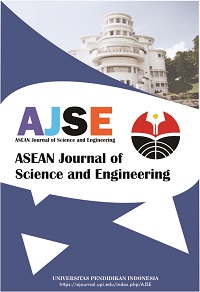Effect of Proper Treatment on Mineral Oils
Abstract
Keywords
Full Text:
PDFReferences
Jacob, J., Preetha, P., and Thiruthi Krishnan, S. (2020). Review on natural ester and nanofluids as an environmentally friendly alternative to transformer mineral oil. IET Nanodielectrics, 3(2), 33–43.
Lv, Y., Zhou, Y., Li, C., Wang, Q., and Qi, B. (2014). Recent progress in nanofluids based on transformer oil: Preparation and electrical insulation properties. IEEE Electrical Insulation Magazine, 30(5), 23–32.
Minea, A. A. (2019). A review on electrical conductivity of nanoparticle-enhanced fluids. Nanomaterials, 9(11), 1592.
Naddaf, A., and Zeinali Heris, S. (2018). Experimental study on thermal conductivity and electrical conductivity of diesel oil-based nanofluids of graphene nanoplatelets and carbon nanotubes. International Communications in Heat and Mass Transfer, 95, 116–122.
Paper, W. (2011). The effect of moisture on the breakdown voltage of transformer oil. Vaisala, 1, 1–4.
Suhaimi, N. S., Din, M. F. M., Rahman, A. R. A., Hamid, M. H. A., Amin, N. A. M., Zamri, W. F. H. W., and Wang, J. (2020a). Optimum electrical and dielectric performance of multi-walled carbon nanotubes doped disposed transformer oil. Energies, 13(12), 3181.
Suhaimi, S. N., Rahman, A. R. A., Din, M. F. M., Hassan, M. Z., Ishak, M. T., and Jusoh, M. T. Bin. (2020b). A review on oil-based nanofluid as next-generation insulation for transformer application. Journal of Nanomaterials, 2020, 1-17.
Wang, X., Tang, C., Huang, B., Hao, J., and Chen, G. (2018). Review of research progress on the electrical properties and modification of mineral insulating oils used in power transformers. Energies, 11(3), 487.
Wong, K. V., and De Leon, O. (2017). Applications of nanofluids: Current and future. Nanotechnology and Energy, 2010, 105-132.
Yu, W., and Xie, H. (2012). A review on nanofluids: Preparation, stability mechanisms, and applications. Journal of Nanomaterials, 2012, 1-17.
DOI: https://doi.org/10.17509/ajse.v3i3.49523
Refbacks
- There are currently no refbacks.
Copyright (c) 2022 Universitas Pendidikan Indonesia

This work is licensed under a Creative Commons Attribution-ShareAlike 4.0 International License.












